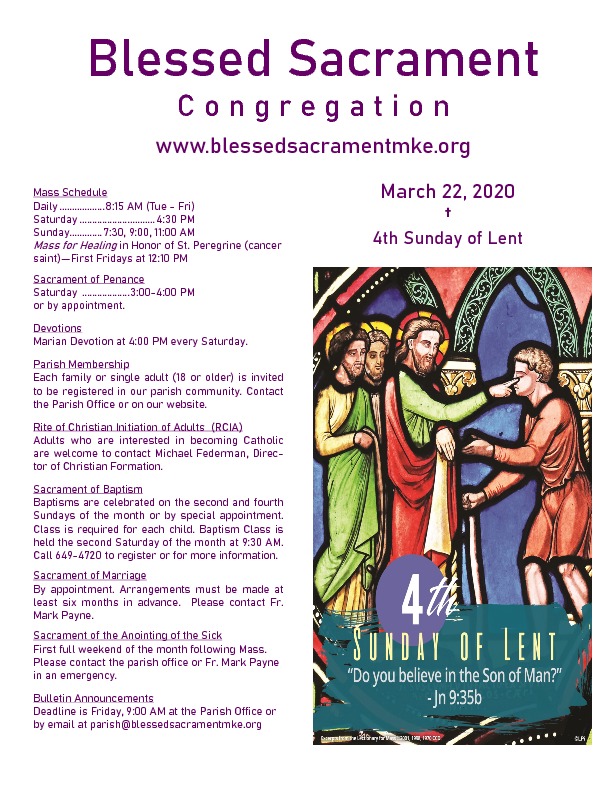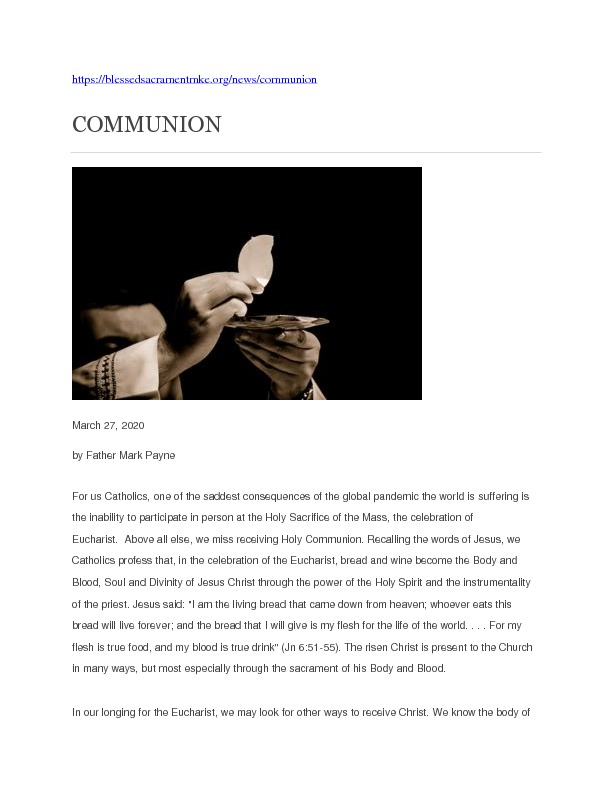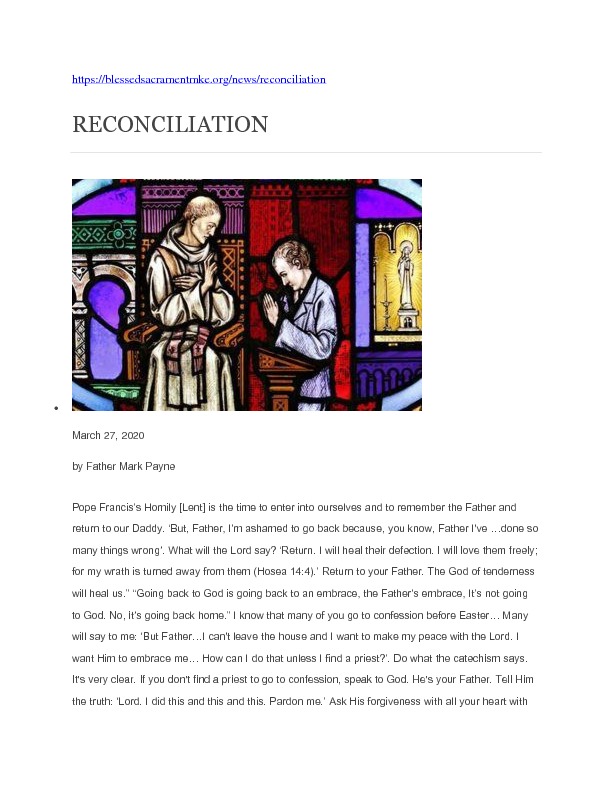Blessed Sacrament Responds
Blessed Sacrament is just one of many parishes in Milwaukee and their bulletin of March 22nd reflects the emerging painful reality and challenges faced by Catholics. For all intents and purposes, the bulletin is what one would expect: information about the sacraments, the week’s schedule, a staff directory, office hours, and last week’s financial contributions among other things. But all events were canceled and the bulletin declared all in bold:
THIS WEEK AT BLESSED SACRAMENT AT THE PRINTING OF THIS BULLETIN, ALL ACTIVITIES AND MASSES AT BLESSED SACRAMENT ARE CANCELLED. WE WILL BE RECORDING MASS AND PLACING IT ON OUR WEBSITE...
One wonders at the last time (if ever) that every parish in Milwaukee broadcasted such a message. But as one might expect, the bulletin ended with a prayer asking Mary for her intercession.
In the following days, Blessed Sacrement's priest, Father Mark Payne, provided leadership to his flock. On March 27th he led the first remote mass. Similar to City Reformed Church, which we will see in a moment, there is something profoundly unusual about worship with only a skeleton crew to record the worship. Father Mark faithfully performed his duties, offering prayers for healthcare workers and parishioners and leading the mass, all the while the solitary lector-cantor sang, read, and responded for the congregation—“Lord, hear our prayers.” In conclusion, Father Mark addressed the COVID-19 situation by encouraging people to help one another in prayer, thought, and deed. In particular, he asked people to continue financially supporting the parish through online giving as much as they were able.
Father Mark also issued two pastoral letters to encourage his parishioners. In one letter titled “Communion.” Father Mark acknowledged the unique suffering of Catholics unable to receive the Mass: “The risen Christ is present to the Church in many ways, but most especially through the sacrament of his Body and Blood.” Despite this deprivation, Father Mark exhorts his flock that the situation called for a “true Lenten fasting” in which parishioners of Blessed Sacrament, so accustomed to frequent mass, could exercise solidarity with their fellow coreligionists around the world who, for whatever reason, were not able to receive Communion on a regular basis. In his second pastoral letter also dated on the 27th of March, Father Wish comforted parishioners deprived of the sacrament of penance by telling them to speak to God the Father directly. Referencing Pope Francis homily of March 20th, 2020, Father Wish writes, “You yourself can draw near, as the catechism teaches us, to God's forgiveness, is without having a priest at hand.”
An interview with Michael Federman on May 11th provided insight into the ongoing work of the parish two months after the initial shutdowns. As the parish's Director of Christian Formation, Federman emphasized how important flexibility is during these times for parish staff. Initially, it was unclear how serious the problem was. But by mid-March, full lockdowns went into effect and Federman increasingly became important in running the parish website and creating a more robust internet presence. And this led to some exciting developments as Blessed Sacrament grew its internet presence. Suddenly daily masses, which had previously had only 15 to 20 people in attendance, now had 300-400 daily watchers and donations came in from across the nation and even as far as the United Kingdom. This underscores another point: despite concerns, Federman was proud of how parishioners stepped up and Blessed Sacraments giving remained steady. Federman notes, though, how the novelty of online began to wear off and eventually became more of a grind. The lack of in-person interaction was especially wearisome and Federman looks forward to the day they can return to mass. In fact, he mentioned Archbishop Listecki’s guidelines for reopening at the end of May while also insisting on the importance of maintaining the parish’s online presence. In a parting thought, Federman wondered about the future and the debate over essential and non-essential, saying “We are essential for a lot of people.”



